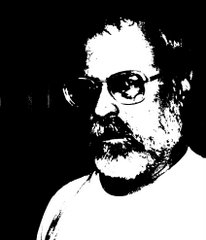Movie Review
Review: The Lost Dutchman (Click here to see promotional poster)
Harry Arp, who wrote, scripted, produced, directed, and starred in the autobiographical �The Lost Dutchman,� has created his masterpiece work. In this wonderfully complex yet simple film he breaches the metaphysical divide between movies and the existential condition of postmodern life. His narrative works on several levels.
This story of a Dutchman lost in his world and seeking shelter is a captivating story on the surface-narrative level which guarantees its box office success. The global audience will be enthralled and drawn into the story which is so universal in its expression of the human condition as to cross all cultural boundaries from the pre-modern tribes of Papua New Guinea, to the more modern societies of the Indian subcontinent, to the postmodern mega-state of the European Union and North America. Mr. Arp has succeeded where no other filmmaker has even dared to tread.
On a symbolic level, Mr. Arp makes use of the symbol of water which takes us to the archetypal level of birth, life, and the always changing yet always same aspects of life on this planet. An early scene in the film shows Mr. Arp wandering as if in a drug induced stupor near a large river where he falls to his knees in worship of a phenomenon that is visible only to him. The vision, withheld from the audience, is so powerful to Mr. Arp that he removes his clothing and dives into the river wherefrom he later emerges draped in a purple robe. This universal image of rebirth resonates with all religions, but it evoked in this viewer parallels with the first chapter of Mark in the New Testament where Jesus is baptized by John the Baptist and emerges from the water touched by the Holy Spirit. With the epiphany still fresh in his mind Harry leads us (and we willingly follow) to an astonishing revelation about the power of the Horse of Holy Faith represented by El Caballo de Santa Fe which grazes in peace by the river calling to mind the 23rd Psalm. Arp juxtaposes the primordial symbol of power under control, El Caballo, with the stone tablet on which it is carved, heralding the handing down of divine law. The following scene in which he eats grass and drinks river water on all fours alongside El Caballo finishing with the simultaneous evacuation of his and El Caballo�s bowels brings us to a depth meaning never before seen in the history of film.
On the subconscious level Mr. Arp succeeds as he has his character wear a crown of question marks to denote the immortal and constant question-maker which is the human mind. He masterfully touches our depths with the deeply moving symbol of the octagon-shaped stop sign wherein the expected word �Stop� is replaced by the less comforting and personalized word �Lost.� Arp emphasizes this contrast of the anticipated with the actual later in the film when he finds himself confronted with the appearance of another similarly shaped sign bearing the word �stop,� guiding himself and us to a profound understanding of that word. He masterfully brings to the screen the sense of meaninglessness, abandonment, and fear in which our species encounters an impassive universe. Yet he never allows us to lose sight of the life-affirming potential of hope as he deftly displays the name of his film on a street sign perpendicular to the esoteric SR 88, a subtle reference to the �morning-after� pill RU-486 from which the viewer infers the God-like benefits that postmodern relativism has conferred on us. Here he engages us in our own quest for meaning, and encourages us to define for ourselves what life as we know it can mean within the confines of our sexual instincts.
I heartily recommend this soon to be Oscar-winning film. Five stars, two thumbs, and one penis up!
Marcos Arroyos
Subscribe to:
Post Comments (Atom)

No comments:
Post a Comment